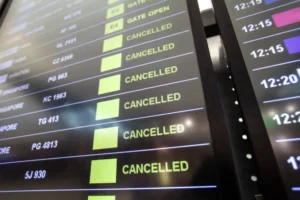Alaska House Judiciary Committee members raised serious concerns Friday over the state’s legal exposure from housing ICE detainees in Alaska. Representative Andrew Gray, D-Anchorage, who chairs the committee, warned that ignoring federal standards could lead to costly lawsuits for Alaskans.
He called the state’s current handling of Immigration and Customs Enforcement detainees legally risky following a tense public hearing. Several Republican members skipped the hearing, calling it political theater.
Representative Mia Costello, R-Anchorage, said the hearing prompted sanctuary state politics that have no place in Alaska. During the meeting, Department of Correction Commissioner Jen Winkleman testified virtually and admitted a staffer used pepper spray near a detainee during a facility lockdown.
She claimed the individual was not complying with orders, but Gary countered that the detainee was reportedly seeking help from their embassy. Three attorneys testified about alleged mistreatment, describing civil detainees being punished as if they were facing criminal charges behind bars.
Cindy Woods from the ACLU said some detainees had no access to legal help, especially in remote parts of the state. Woods also responded to a rumor raised by Gray stating that ICE may be planning to convert Adak’s military base into a detention site.
She called the possibility alarming and noted ICE has historically chosen legal deserts to limit detainees’ access to attorneys and courts. Immigration attorney Nicolas Alano warned that missed court appearances in Alaska could result in deportation due to limited access and remote housing.
Gray said he believed multiple DOC staff members, not just Wnkleman, should have testified to explain daily conditions inside detention units more clearly. Meanwhile, House Republicans boycotted the hearing, calling it partisan grandstanding and defending Alaska’s cooperation with federal immigration enforcement.
Governor Mike Dunleavy acknowledged the detainee’s presence but dismissed concerns, noting ICE contracts are routine and federally reimbursed. Still, Gray insisted Alaskans must know how ICE detainees are treated and whether new facilities like Adak are being quietly prepared.











